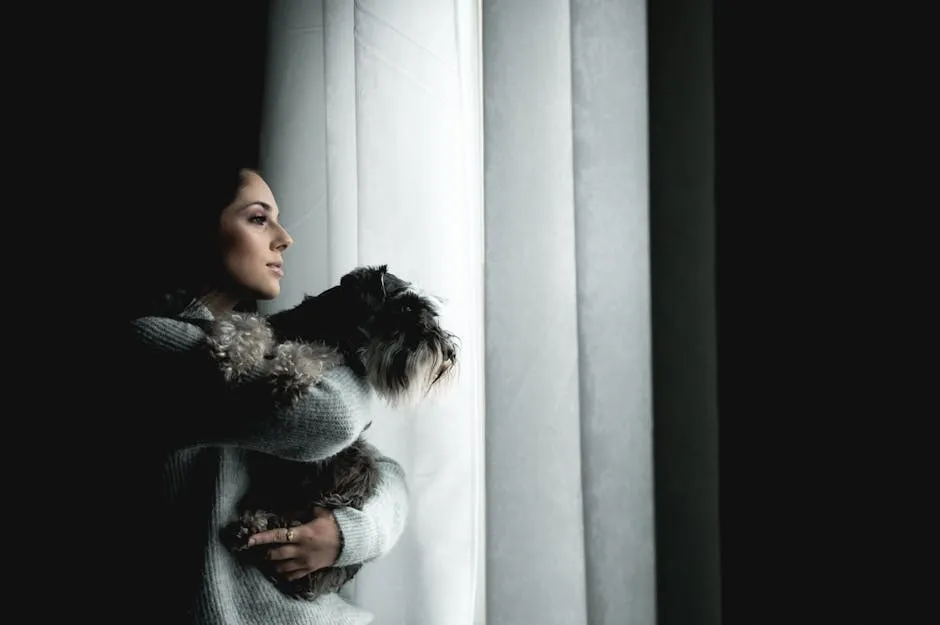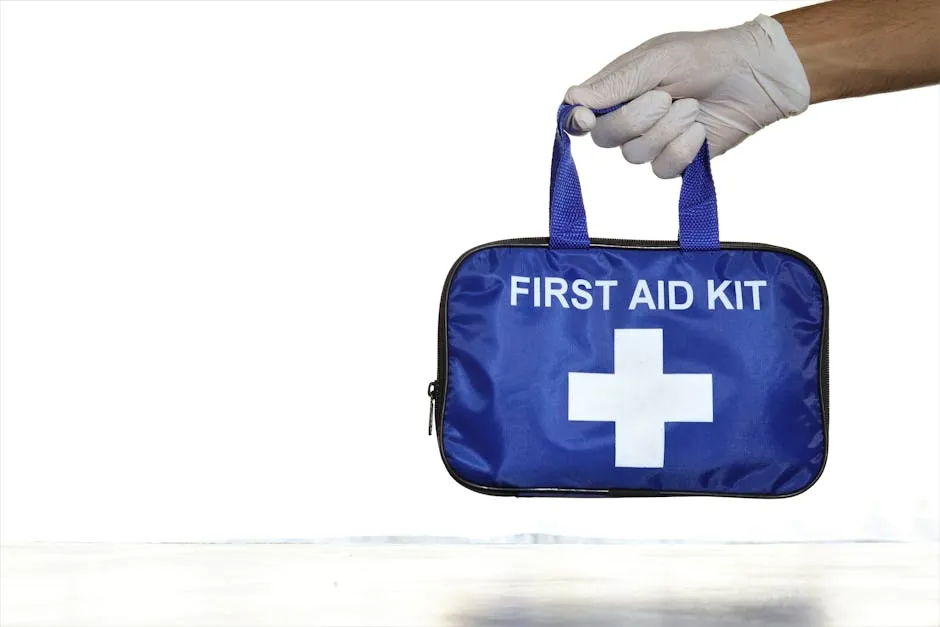
Why is My Dog Shaking? Understanding the Causes and Solutions
Introduction
Imagine curling up on your couch after a long day, only to see your furry friend trembling like they just ran a marathon. It can be a puzzling sight, leaving you to wonder: why is my dog shaking? While some shaking is as harmless as a happy tail wag, others can signal deeper issues. In this guide, we’ll uncover the multitude of reasons behind your dog’s shaking—from excitement and cold weather to more serious health conditions. So grab a cup of coffee, and let’s dig into the shaky world of our canine companions!
If you’re curious about the reasons behind your dog’s shaking, check out this informative post on why is my dog shaking.
Summary
In this article, we’ll explore the various causes of shaking in dogs, ranging from benign to serious medical issues. We’ll cover behavioral factors like excitement and anxiety, environmental causes such as temperature changes, and medical conditions including poisoning and seizures. Understanding these factors is crucial for dog owners to determine when shaking is a normal part of dog behavior or a sign that it’s time to see a veterinarian. We will also provide practical tips on how to help your dog in various situations, ensuring both you and your pet can live a happy and healthy life together. Read on to find out if your dog is just a little chilly or if they need immediate medical attention!
Speaking of chilly, if your furry friend is feeling the cold, consider getting them a stylish Dog Sweater for Cold Weather. Not only will it keep them warm, but they’ll also look adorable strutting around in it!

The Basics of Dog Shaking
Dogs shake for various reasons, some quite common. Shaking, shivering, or trembling can stem from innocuous causes like excitement, cold, or even drying off after a bath. For example, have you noticed your pup doing a little happy dance when you walk through the door? That’s excitement shaking!
Conversely, if your dog is shaking in the middle of winter, they might simply be trying to warm up. But let’s not overlook the more serious reasons behind shaking. Anxious dogs might tremble during thunderstorms or fireworks, often accompanied by other signs of distress. Also, older dogs may shake due to pain or illness.
Understanding why your dog shakes is essential. If the shaking is sudden, excessive, or accompanied by other concerning symptoms, it’s time to consult your veterinarian. Remember, your furry friend’s health and comfort are paramount!

Common Causes of Dog Shaking
Environmental Causes
Cold Weather
Dogs shiver to generate heat, especially in chilly conditions. Smaller breeds, like Chihuahuas or Dachshunds, are particularly prone to feeling cold. If your dog is shaking outdoors, consider a cozy jacket to keep them warm. They may also appreciate a warm blanket once inside!
For those extra chilly days, a Dog Coat for Winter can be a game-changer. Keep your pup warm and stylish with the latest winter fashion!

Wet Dog Syndrome
Ever seen your dog shake right after a bath? This is their way of getting rid of water. Dogs can shake off approximately 70% of water in just a few shakes. So, while you might want to towel them down, they’ve got their own drying technique.
Behavioral Causes
Excitement
Shaking due to excitement is common. When you return home, your dog might tremble with joy. This type of shaking is harmless and usually subsides as they calm down. If it becomes disruptive, consider greeting your dog calmly and encouraging them to sit.

Stress and Anxiety
Shaking can indicate fear or anxiety. Stressful situations like vet visits or loud noises may trigger trembling. Dogs may also pant, pace, or hide when anxious. Identifying triggers is key. Providing a safe space and using calming products like Pheromone Diffuser for Dogs can help soothe your dog during these episodes.
Medical Causes
Pain or Illness
Shaking can be a sign that your dog is in pain. Conditions like arthritis can make older dogs tremble. If your dog is reluctant to move or appears uncomfortable, it’s essential to consult your veterinarian. They can help identify the underlying issue.

Toxins and Poisoning
Shaking can also indicate poisoning. Common toxins include chocolate, xylitol, and certain plants. Symptoms may include vomiting or diarrhea. If you suspect your dog has ingested something harmful, seek immediate veterinary care.
Seizures and Neurological Disorders
Seizures often manifest as violent shaking or tremors. If your dog experiences a seizure, it’s crucial to contact your vet right away. Conditions like epilepsy can cause repeated seizures and require ongoing care.
When to See a Veterinarian
If your dog is shaking excessively or exhibiting other concerning symptoms, it’s time to visit your veterinarian. Key indicators include lethargy, loss of appetite, diarrhea, or if the shaking persists despite calming efforts. Your vet can help determine the cause of the shaking and recommend appropriate treatment.
How to Calm a Shaking Dog
To soothe a shaking dog, create a safe, quiet space for them. Gentle petting and reassurance can help. Consider using calming music or a favorite toy to provide comfort. If your dog’s shaking is situational, like during storms, distraction methods can work wonders. Regular exercise and a consistent routine can also alleviate anxiety in the long run.

Additionally, you might want to look into Dog Anxiety Relief Chews to help them feel more at ease during those stressful moments. After all, a relaxed dog is a happy dog!
Conclusion
Understanding why dogs shake is essential for pet owners to provide the best care possible. While shaking can often be a harmless reaction to excitement or cold, it can also signify deeper health concerns. Regularly monitoring your dog’s behavior and knowing when to consult a veterinarian can ensure your furry friend stays healthy and happy.
By being proactive and attentive, you’ll not only help your dog feel more secure but also strengthen the bond between you two. So, the next time your pup starts to shake, remember: with a little patience and love, you can help them find their calm. Being a pet parent means navigating both the joyful and the jittery moments, but with the right tools, you can create a peaceful environment for your beloved canine companion.

FAQs
When should I be worried about my dog shaking?
You should be concerned if your dog shakes excessively or if the shaking is accompanied by other symptoms. If your pup is lethargic, loses appetite, or experiences vomiting or diarrhea alongside the shaking, it’s time to consult your veterinarian. Sudden shaking after exposure to toxins or if your dog is shaking and can’t walk are also red flags. Always trust your instincts—better safe than sorry!
What are the signs of poisoning in dogs?
If your dog has ingested something harmful, symptoms can vary widely. Look for signs such as vomiting, diarrhea, drooling, or lethargy. Tremors or shaking can also indicate poisoning, especially with common toxins like chocolate or xylitol. If you suspect poisoning, contact your veterinarian immediately. Quick action can save your furry friend!
How can I help my dog feel less anxious?
To calm an anxious dog, create a safe space where they feel secure. This could be a quiet room with their favorite blanket or bed. Try using calming music or soft toys to distract them. Additionally, consider anxiety wraps, which provide gentle pressure, mimicking a hug. Regular exercise and a consistent routine can also help reduce anxiety. If anxiety persists, consult your veterinarian for potential medications or behavior modification strategies.
Is shaking normal for puppies?
Puppies can shake for several reasons, and it’s often normal. They might tremble due to excitement, fear, or being cold. However, if a puppy shakes excessively or shows other concerning behaviors, it’s best to consult a vet. Puppies are also more vulnerable to certain health conditions, so monitoring their shaking closely is essential.
What if my dog is shaking and also acting strangely?
If your dog is shaking and behaving unusually, such as being overly aggressive, lethargic, or disoriented, it’s crucial to seek veterinary help. These behaviors can indicate pain, illness, or anxiety. Documenting the shaking episodes and any changes in behavior will provide valuable information for your veterinarian. Quick intervention can help identify the issue and ensure your pup gets the help they need.
For those pet owners who like to be prepared, a Pet First Aid Kit is a must-have. Because when it comes to our furry friends, it’s better to be safe than sorry!

Please let us know what you think about our content by leaving a comment down below!
Thank you for reading till here 🙂
All images from Pexels




